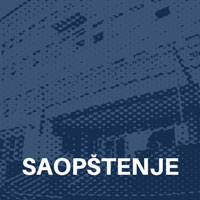Compensation to Kosovo Albanians for human rights violations

 The First Basic Court in Belgrade passed two judgments ordering the Republic of Serbia to pay compensation to six Kosovo Albanians from Glogovac, in amounts ranging from 125,000 to 370,000 dinars, because of Serbia’s responsibility for torture and unlawful detention committed by members of the Ministry of the Interior (MoI). Although the judgments established the right to compensation for violations of basic human rights, the Humanitarian Law Center (HLC) emphasizes that the amounts awarded are unjustifiably low and the rationale of the judgments indicates the intention of reducing the state’s responsibility for the widespread torture against Kosovo Albanians in 1999. The HLC lawyers have filed appeals for the judgments to the Court of Appeal in Belgrade.
The First Basic Court in Belgrade passed two judgments ordering the Republic of Serbia to pay compensation to six Kosovo Albanians from Glogovac, in amounts ranging from 125,000 to 370,000 dinars, because of Serbia’s responsibility for torture and unlawful detention committed by members of the Ministry of the Interior (MoI). Although the judgments established the right to compensation for violations of basic human rights, the Humanitarian Law Center (HLC) emphasizes that the amounts awarded are unjustifiably low and the rationale of the judgments indicates the intention of reducing the state’s responsibility for the widespread torture against Kosovo Albanians in 1999. The HLC lawyers have filed appeals for the judgments to the Court of Appeal in Belgrade.







